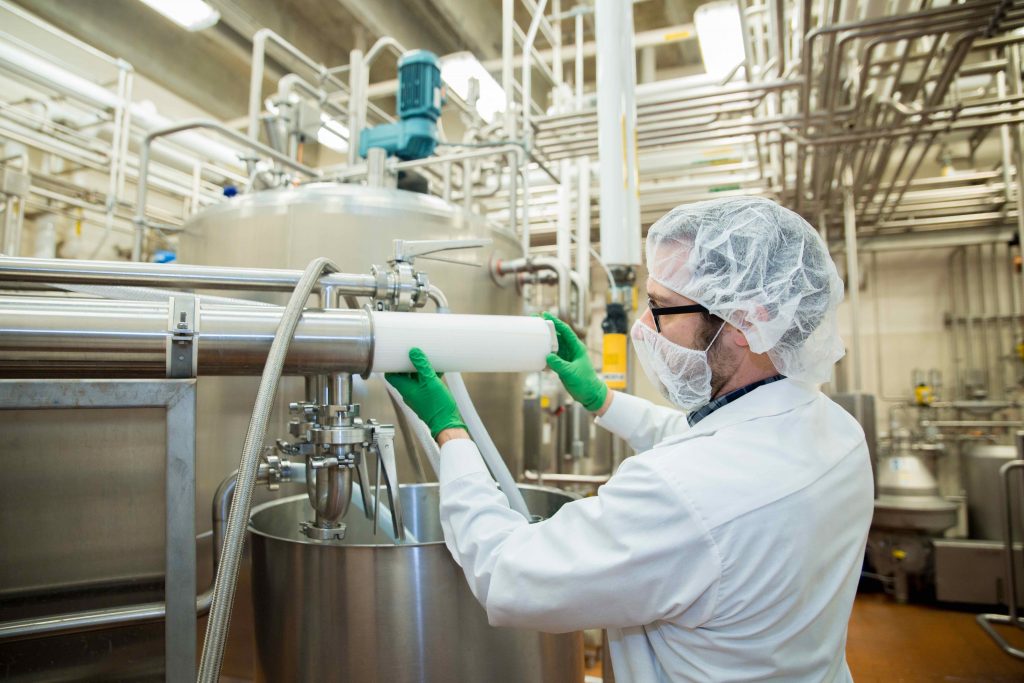Kurt Blohm (‘06) is currently an applications engineer at Applied Biomimetic, a company based in Cincinnati, OH, with a unique focus on the development of membranes for water treatment and filtration systems. Kurt graduated from Hope College with a Bachelor of Science degree in engineering with a concenration in chemical engineering. He started his career at ERG, an environmental consulting firm, while also working to obtain his Master of Science degree in chemical engineering at Ohio State University, which he completed in 2010. Kurt has enjoyed a wide variety of experiences including working as a process engineer at an ethanol plant (Valero Renewables), working for a water treatment startup company (Advanced Hydro), and working as a scientist focused on research and development (Battelle).

Kurt describes himself as a chemical process engineer, but his role also includes a healthy dose of sales and business development. In his current role, he travels regularly to customer sites to develop new applications for Applied Biomimetic’s filtration products. His diverse responsibilities also allow him the opportunity to perform research and development work in a laboratory setting, and to design, build, and operate pilot systems to evaluate the success of Applied Biomimetic’s membranes in separating various flow streams. The following are excerpts from a recent correspondence with Kurt.
What do you find most exciting about the work that you do?
I’ve had a range of experiences, from process engineering to R&D and now business development. On any given day, I could be programming a PLC [programmable logic controller], studying protein separation/purification in the lab, or in another country talking to customers. I’ve also had the opportunity to develop my own novel ideas as I have several patents pending in the area of seawater desalination from my time at Battelle. This versatility is a big part of who I am, not just professionally, but personally.
What are some activities you were involved with at Hope that helped shape you as a person?
Engineers without borders was an amazing experience. It helped me realize the value of my education and grew my interest in water and energy. The summer research program is a great way to gain experience and get to know your professors’ research interests.
What aspect of your engineering education was most helpful?
The professors in the sciences are truly top notch. Dr. Misovich was a great mentor and example to me. I could say equally great things about the rest of the faculty, but I had the most exposure to Dr. M.
Can you comment on the liberal arts aspect of Hope?
I think Hope College engineers have a sense of community that I don’t see at other institutions and the same goes for the sports teams (I was on the swim team at Hope). Liberal arts colleges draw that kind of person, but Hope College students are especially community and service oriented.
What advice would you give to current students?
- Don’t be overly concerned with grades. If you have a weak subject or two, learn the main concepts and move on.
- Get hands on experience as soon as possible, through internships or for example, working in construction.
- For chemical engineers: I firmly believe every career chemical engineer should work as a process engineer at a refinery or production plant for some time (or, for example, as a shift supervisor). You should know the plant inside and out by the time you leave – every valve, pump, vessel and control loop. Get to know all the operators, mechanics, and electricians on a personal level because and you can learn a lot from their perspective.
- For students pursuing R&D and academia paths, I defer to Richard Feynman: “It doesn’t matter how beautiful your theory is, it doesn’t matter how smart you are. If it doesn’t agree with experiment, it’s wrong.”

